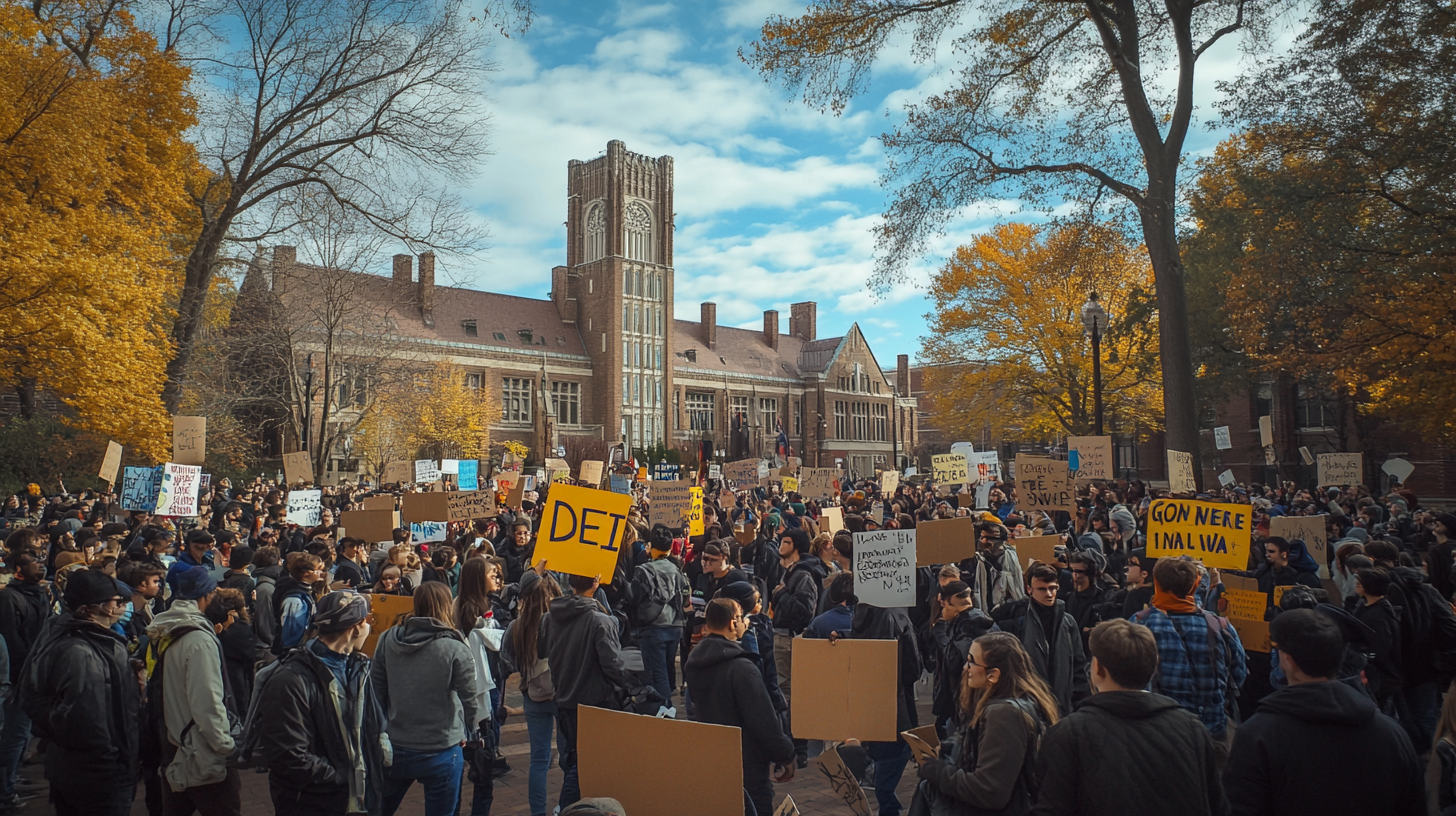University of Michigan Weighs Changes to Its Diversity Program
The University of Michigan, known for its strong support of diversity, equity, and inclusion (D.E.I.) initiatives in higher education, is considering significant changes to its program amidst a national debate over such efforts. These discussions come at a time when colleges nationwide are anticipating potential shifts in policy with a potential second Trump presidency.
Proposed Changes to D.E.I. Policies
The University’s board of regents, who typically operate through consensus with a current Democratic majority of 6-2, are expected to propose restrictions on utilizing diversity statements in hiring and promotions. Moreover, they are contemplating reallocating a portion of the D.E.I. budget towards recruiting and providing tuition guarantees for low-income students.
The proposed changes at the University of Michigan mark a notable moment as the institution seeks to internally reassess its D.E.I. strategies, rather than reacting to external legislative mandates. This initiative places Michigan among the pioneering selective public universities undertaking such a self-directed evaluation.
Campus Reaction and Opposition
Preliminary discussions among the regents and university officials have stirred significant opposition on campus, creating a wave of unrest that has culminated in large rallies. Just this week, hundreds of students and faculty rallied in support of maintaining the existing D.E.I. framework.
Pragya Choudhary, a junior at the University, addressed the crowd, emphasizing the importance of ongoing D.E.I. efforts. “I don’t think a single person in this audience thinks that the D.E.I. initiatives at this university are perfect,” said Choudhary. “But I know that every single person here knows that without those initiatives, this university would be a worse place yet.”
Concerns and Misunderstandings
The debates have revealed a wider tension and misunderstanding across campus regarding the specific purposes and outcomes of the D.E.I. initiatives and the regents’ plans. Critics fear the potential defunding of D.E.I. efforts on a large scale, despite assurances from the regents that dismantling the program is not on the agenda. Further, misconceptions exist concerning the future of the “Go Blue Guarantee” — a program offering full tuition to lower-income Michigan students, which is actually poised for expansion according to the regents.
Importance to the Local Community
For residents of Ann Arbor and the broader Michigan community, these discussions about D.E.I. are more than just university politics; they reflect on broader societal values around inclusion and opportunity. Changes to the university’s D.E.I. program could have substantial implications, shaping the institution’s demographic makeup and how inclusive it is perceived to be by prospective students.
Ellen Ryder, an Ann Arbor local and a parent of a university student, shared her concerns about these potential changes. “A diverse student body enriches the educational experience for everyone. Rolling back these programs sends a troubling message about our commitment to equity in education,” she commented.
Looking at the Bigger Picture
This situation at the University of Michigan parallels broader national discussions on the place of D.E.I. programs in educational institutions, particularly as political climates shift. If these changes proceed, the university’s approach may serve as a case study for other institutions grappling with how to balance internal priorities against external political pressures.
Future Implications and Moving Forward
Regents are scheduled to meet on December 5th to formally discuss and potentially decide on these proposed adaptations to the D.E.I. program. Outcomes from this meeting could set a precedent for similar institutions wrestling with how to sustain inclusive practices amidst evolving political and economic landscapes. Maintaining open lines of communication and engagement with the university community will be key in navigating this complex issue.
In conclusion, the University of Michigan’s deliberations over its D.E.I. program hold significant weight not only for the institution but also for its community and the spectrum of stakeholders involved. As conversations progress, it remains imperative that the focus stays on crafting solutions that honor the university’s values and commitment to a diverse academic environment.
For those looking to stay informed or engage with these developments, the university will hold public forums and discussions. Community members are encouraged to participate actively to express their perspectives, ensuring that the outcome reflects a balance of the diverse voices within the community.







